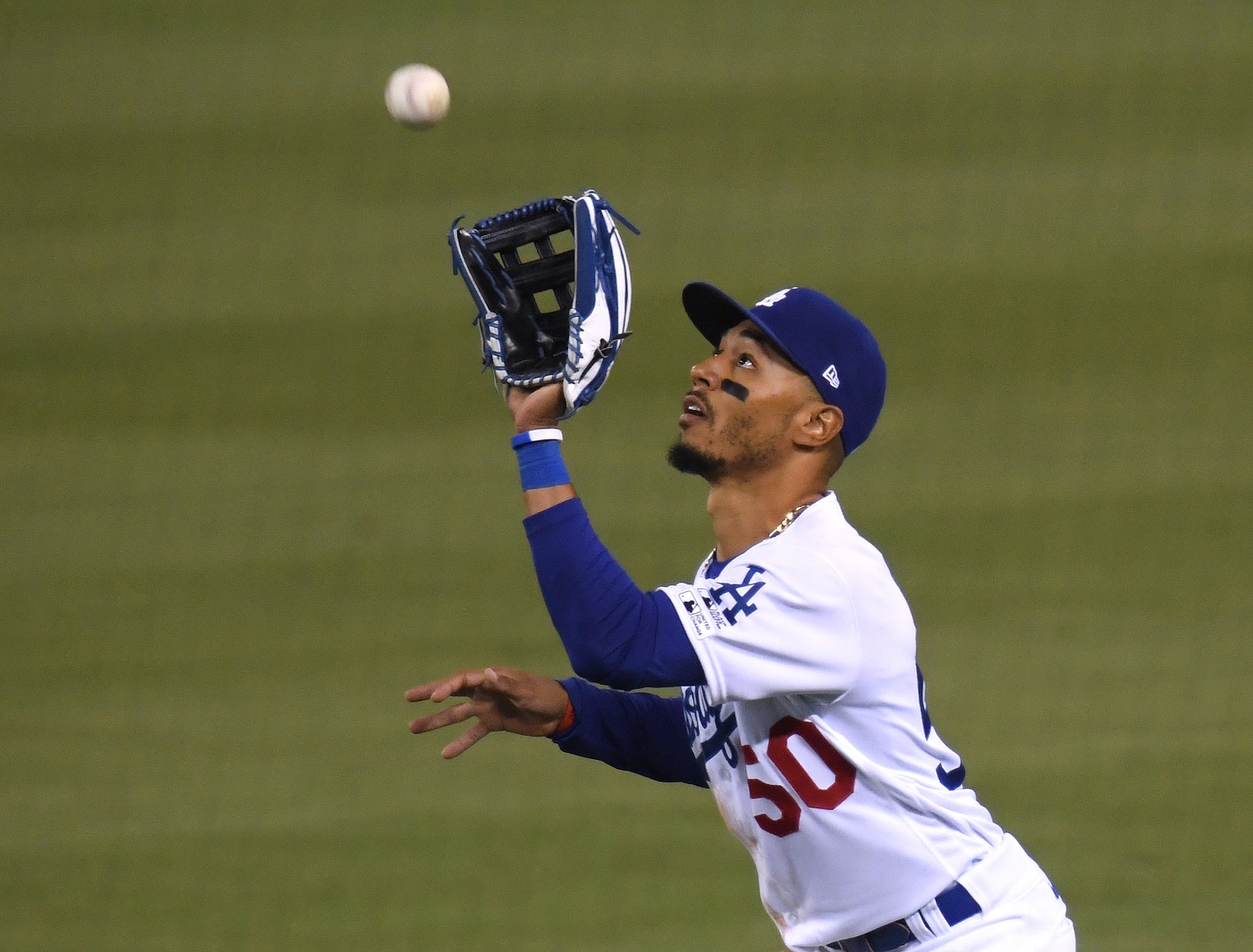MLB
The Red Sox Rightfully Trolled the Dodgers Over Mookie Betts’ Contract

The Boston Red Sox came close to making the same mistake that the Los Angeles Dodgers just made with Mookie Betts’ contract extension. Betting that this year’s 27-year-old outfielder will perform the same way in 2028 at the age of 35 is a gamble repeatedly made and lost by MLB teams.
Projecting Mookie Betts’ production is a risk
Giving Wayne Garland MLB’s first 10-year contract after the 1976 season was a mistake by the Cleveland Indians from which every team learned. The shoulder on Garland’s throwing arm was damaged goods after his first season and he was done after going 13-26 with a 5.02 ERA from 1979-81. Of course, pitchers are a different animal, and teams know now not to mortgage the future on a pitching arm.
But the list of everyday players given 10-year contracts or extensions like what Mookie Betts just received is littered with disappointments. The Texas Rangers signed outfielder Richie Zisk and got a .271 average with 59 homers over the first three seasons before making him part of an 11-player trade with the Seattle Mariners after the 1980 season. Zisk approximated those numbers in three seasons in Seattle before being released at the age of 34 and never playing again.
The New York Yankees almost got their 10 years’ worth out of Dave Winfield and technically did with Alex Rodriguez after the Rangers signed him for $252 million over 10 years but quickly realized they couldn’t afford him. The Yankees re-extended A-Rod (a mistake) and looked smart by the end of Derek Jeter’s decade-long contract signed in 2001.
Ryan Braun hasn’t been spectacular for Milwaukee but doesn’t have to be for just $145 million over 10 years. On the other hand, Troy Tulowitzki didn’t pan out as expected by Colorado.
And then there’s the other Los Angeles team: The fallacy of the Angels’ decision in 2012 to pay Albert Pujols $254 million over a decade was apparent after three years. He stopped hitting for average immediately, and Pujols’ power started to wane after turning 36 in 2016.
Why the Red Sox were OK to troll the Dodgers
RELATED: Javier Baez Should Benefit Greatly From the Mookie Betts Deal
Los Angeles Dodgers outfielder Mookie Betts was due $27 million this year with the Boston Red Sox, after which he would have been a free agent. Boston traded Betts to the Los Angeles Dodgers in the offseason, ridding itself of half of the remaining $96 million on pitcher David Price’s contract in the process.
Betts agreed last week to a 12-year, $365 million extension with the Dodgers. The average annual salary is right in the ballpark of what Boston was willing to pay. But Red Sox ownership hit the brakes once Betts made it clear that he wanted long-term security; the 10 years for $300 million that they offered was already beyond their comfort zone.
“It’s always difficult to trade a talented player of Mookie’s caliber, but let’s revisit this conversation in 12 years,” Red Sox chairman Tom Werner told WEEI in Boston. “That’s a very, very long-term deal for a team to swallow. You guys know as well as I do that the history of long-term deals is checkered at best.”
Werner didn’t stop with wondering about 12 years down the road. He also chose to look back two decades in taking a shot at the Dodgers’ decision-making over the years. After all, their seven straight division titles have translated into just two trips to the World Series.
“When people are partying in Los Angeles, I just want to remind Los Angeles … that in the last 20 years, Los Angeles has won zero World Series and the Red Sox have won four,” Werner said.
Two players who’ll be linked to Mookie Betts for a decade or more
RELATED: Mookie Betts’ Massive Contract is Great News for Aaron Judge
Now that Mookie Betts has his 12-year extension, more of these long-term deals are inevitable. For now, Betts will be compared to Mike Trout and Bryce Harper on a regular basis. Both are early in their new deals.
Three-time AL Most Valuable Player Trout is on the books for 12 years at $430 million with the Los Angeles Angels. His deal is no less risky than Betts’ contract, but Trout is only a year older and has a slightly more impressive body of work thus far. Still, one might have thought the Angels would have learned their lesson with Albert Pujols.
Harper has completed just one season of his 13-year, $330 million contract with the Philadelphia Phillies. Based upon his .260 average with 35 home runs, the Phillies could be in for buyer’s remorse. On the other hand, the $70.5 million over the final three years will look like peanuts if Harper is still hitting a decade from now and the going rate for star sluggers reaches $45 million or $50 million a year.











